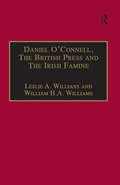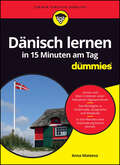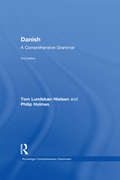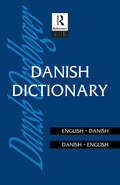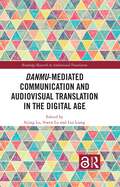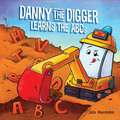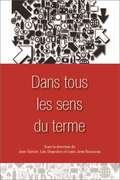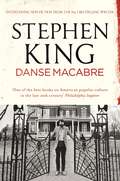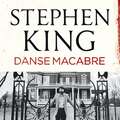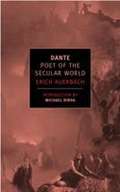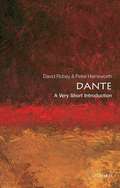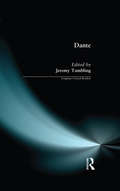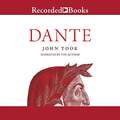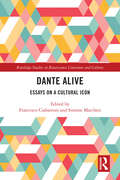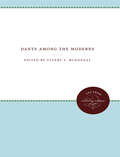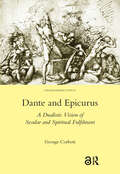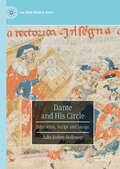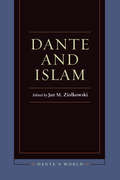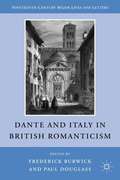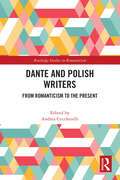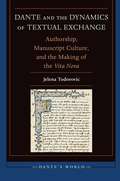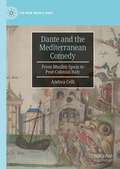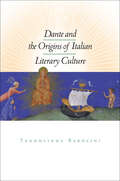- Table View
- List View
Daniel O'Connell, The British Press and The Irish Famine: Killing Remarks (The Nineteenth Century Series)
by Leslie A. WilliamsThrough an investigation of the reportage in nineteenth-century English metropolitan newspapers and illustrated journals, this book begins with the question 'Did anti-O'Connell sentiment in the British press lead to "killing remarks," rhetoric that helped the press, government and public opinion distance themselves from the Irish Famine?' The book explores the reportage of events and people in Ireland, focussing first on Daniel O'Connell, and then on debates about the seriousness of the Famine. Drawing upon such journals as The Times, The Observer, the Morning Chronicle, The Scotsman, the Manchester Guardian, the Illustrated London News, and Punch, Williams suggests how this reportage may have effected Britain's response to Ireland's tragedy. Continuing her survey of the press after the death of O'Connell, Leslie Williams demonstrates how the editors, writers and cartoonists who reported and commented on the growing crisis in peripheral Ireland drew upon a metropolitan mentality. In doing so, the press engaged in what Edward Said identifies as 'exteriority,' whereby reporters, cartoonists and illustrators, basing their viewpoints on their very status as outsiders, reflected the interests of metropolitan readers. Although this was overtly excused as an effort to reduce bias, stereotyping and historic enmity - much of unconscious - were deeply embedded in the language and images of the press. Williams argues that the biases in language and the presentation of information proved dangerous. She illustrates how David Spurr's categories or tropes of invalidation, debasement and negation are frequently exhibited in the reports, editorials and cartoons. However, drawing upon the communications theories of Gregory Bateson, Williams concludes that the real 'subject' of the British Press commentary on Ireland was Britain itself. Ireland was used as a negative mirror to reinforce Britain's own commitment to capitalist, industrial values at a time of great internal stress.
Dänisch lernen in 15 Minuten am Tag für Dummies (Für Dummies)
by Anna MateevaSie wollen Dänisch lernen, aber der Gedanke, stundenlang Vokabeln und Grammatik zu pauken, schreckt Sie ab? Dann ist dieses Buch genau das Richtige für Sie! In kurzen, auf 15 Minuten pro Tag begrenzten Lektionen bringt es Ihnen auf einfache und unterhaltsame Weise die dänische Sprache näher. So erfahren Sie im Handumdrehen alles Wichtige über Grammatik, Aussprache und übliche Redewendungen. Durch regelmäßigen Wiederholungsfragen können Sie Ihr Wissen testen und mit Hilfe des zum Download verfügbaren Audiomaterials auch die Aussprache üben. Nach nur drei Monaten beherrschen Sie die Grundlagen spielend.
Danish: A Comprehensive Grammar (Routledge Comprehensive Grammars)
by Tom Lundskaer-Nielsen Philip HolmesDanish: A Comprehensive Grammar presents a fresh and accessible description of the language, concentrating on the real patterns of use in modern Danish. The volume is organized to promote a thorough understanding of Danish grammar. It offers a stimulating analysis of the complexities of the language, and provides full and clear explanations. This edition has been fully updated to reflect changes in grammar, cultural changes and the impact of modern technology. All sections have been systematically revised, and a new section on phrases and an up-to-the-moment account of the use of the comma have been added. The examples and grammar explanations have been improved throughout. Features include: a wealth of examples from present-day Danish particular attention to areas of confusion and difficulty Danish-English parallels highlighted throughout the book an extensive index and clear paragraph numbering for easy navigation cross-references in all parts of the book. Danish: A Comprehensive Grammar is the most comprehensive and detailed Danish grammar available in English and is an essential reference source for the learner and user of Danish at all levels. It is ideal for use in schools, colleges, universities and adult classes of all types.
Danish Dictionary: Danish-English, English-Danish (Routledge Bilingual Dictionaries)
by Anna Garde W. Glyn JonesFirst Published in 1995. This compact and up to date, two-way dictionary provides a comprehensive and modern vocabulary. It is an ideal reference for beginners or specialists. The maximum information is provided in the minimum space, making the dictionary an invaluable reference source.
Danmu-mediated Communication and Audiovisual Translation in the Digital Age (Routledge Research in Audiovisual Translation)
by Sijing Lu Siwen Lu Lisi LiangThis collection represents the first of its kind, bringing together the latest research on danmu, the fast-growing phenomenon of live comments overlaid on audiovisual media changing the shape of audience participation on video-streaming platforms and of audiovisual translation research today.The volume presents compelling evidence of danmu's growing influence in shaping the future of audiovisual translation and online computer-mediated communication. Through diverse theoretical and methodological lenses, the chapters delve into how danmu facilitates audience participation, impacts documentary viewing through emotional engagement, and challenges traditional subtitling with multimodal pseudotranslations. It further explores cultural citizenship in video game commentary, virtual communities of practice in danmu, and Chinese audience preferences in danmu-enhanced viewing experiences.This book will be of interest to scholars in audiovisual translation, media studies, digital communication, and East Asian studies.Chapter 6 of this book is freely available as a downloadable Open Access PDF at http://www.taylorfrancis.com under a Creative Commons Attribution-NonCommercial-NoDerivs (CC BY-NC-ND) license.
Danny the Digger Learns the ABCs
by Aja MulfordJoin Danny, a young mini excavator, as he and his construction site friends take on a new job and learn the alphabet along the way!The perfect ABC book for any kid who loves excavators, cranes, dump trucks, backhoe loaders, and mixers, Danny the Digger Learns the ABCs is a follow-up companion to Danny the Digger Saves Christmas. Kids will love learning their letters as they explore the construction site with Danny. The joyful, full-color illustrations feature large, prominent letters that will help toddlers start to recognize letter shapes while also learning the names of vehicles and tools found on construction sites. A wonderful baby shower gift or birthday present for young children!
Dans tous les sens du terme (Regards sur la traduction)
by Jean Quirion, Jean Quirion, Loïc Depecker et Louis-Jean RousseauLa terminologie, soit l'ensemble des termes spécifiques à une science, à une technique ou à un domaine particulier de l'activité humaine, représente aujourd'hui une discipline à part entière. Elle relève aussi bien de la linguistique, dans le cadre de l’analyse du discours spécialisé, que de la logique et des sciences et techniques, dans son rapport à l’objet décrit. Ce livre, dans lequel des spécialistes de divers domaines dressent un panorama de cette discipline en évolution, explore ainsi les multiples approches – actuelles ou émergentes – de la terminologie. On y découvre ses filiations avec de nombreux champs du savoir, dont la communication, la sociologie, la linguistique informatique, les technologies modernes et la documentation. L’ouvrage, qui approfondit certaines questions contemporaines, se veut également une nouvelle introduction à la terminologie ainsi qu’un repère pour se retrouver dans les différentes voies de recherche terminologiques et les applications contemporaines de cette discipline. Il intéressera tout lecteur curieux des faits de langue et des vocabulaires spécialisés.Publié en français
Danse Macabre
by Stephen KingIt was not long after Halloween when Stephen King received a telephone call from his editor. 'Why don't you do a book about the entire horror phenomenon as you see it? Books, movies, radio, TV, the whole thing.'The result is this unique combination of fantasy and autobiography, of classic horror writing honed to an unforgettable edge by the bestselling master of the genre.DANSE MACABRE ranges across the whole spectrum of horror in popular culture from the seminal classics of Dracula and Frankenstein. It is a charming and fascinating book, replete with pertinent anecdote and observation, in which Stephen King describes his ideas on how horror works on many levels and how he brings it to bear on his own inimitable novels.There is a reason why Stephen King is one of the bestselling writers in the world, ever. Described in the Guardian as an author who 'knows how to engage the deepest sympathies of his readers', Stephen King writes books that draw you in and are impossible to put down.
Danse Macabre
by Stephen KingIt was not long after Halloween when Stephen King received a telephone call from his editor. 'Why don't you do a book about the entire horror phenomenon as you see it? Books, movies, radio, TV, the whole thing.'The result is this unique combination of fantasy and autobiography, of classic horror writing honed to an unforgettable edge by the bestselling master of the genre.DANSE MACABRE ranges across the whole spectrum of horror in popular culture from the seminal classics of Dracula and Frankenstein. It is a charming and fascinating book, replete with pertinent anecdote and observation, in which Stephen King describes his ideas on how horror works on many levels and how he brings it to bear on his own inimitable novels.There is a reason why Stephen King is one of the bestselling writers in the world, ever. Described in the Guardian as an author who 'knows how to engage the deepest sympathies of his readers', Stephen King writes books that draw you in and are impossible to put down.(P)2010 Brilliance Audio, Inc.
Dante: Poet Of The Secular World
by Erich Auerbach Michael Dirda Ralph ManheimErich Auerbach (1892-1957) is best known for his magisterial, and majestic, Mimesis: The Representation of Reality in Western Literature (published in German in 1946; English version, 1953). <P><P>This volume of connected essays opens by contrasting the ancient Greek and Hebrew worldviews, as revealed in the Odyssey and the Old Testament. It ends with a close reading of a passage from Virginia Woolf's To the Lighthouse. In the five hundred or so pages in between Auerbach offers searching analyses of short, illustrative extracts from Petronius, Gregory of Tours, Chretien de Troyes, Dante, Boccaccio, Shakespeare, Cervantes, Rabelais, Saint-Simon, Schiller, Stendhal, and others. <P><P>Building on the stylistic quirks, lacunae, and emphases in his carefully chosen authors, Auerbach reveals the underlying suppositions about what art should do and how people and events can be represented in prose at a specific moment in history. As a work of literary scholarship, Mimesis has been deeply and widely admired, occasionally criticized, and never equaled.
Dante (A Very Short Introduction)
by Peter Hainsworth; David RobeyThey emphasise the distinctive and dynamic interplay in Dante's writing between argument, ideas, and analysis on the one hand, and poetic imagination on the other.Dante was highly concerned with the political and intellectual issues of his time, demonstrated most powerfully in his notorious work, The Divine Comedy. Tracing the tension between the medieval and modern aspects, Hainsworth and Robey provide a clear insight into the meaning of this masterpiece of world literature.
Dante: Monarchy
by Prue ShawThis is the first new translation for forty years of a fascinating work of political theory, until now only available in academic libraries. Dante's Monarchy addresses the fundamental question of what form of political organization best suits human nature; it embodies a political vision of startling originality and power, and illuminates the intellectual interests and achievements of one of the world's great poets. Prue Shaw's translation is accompanied by a full introduction and notes, which provide a complete guide to the text, and places Monarchy in the context of Dante's life and work.
Dante: States Of Affect (Longman Critical Readers #18)
by Jeremy TamblingDante's work has fascinated readers for seven hundred years and has provided key reference points for writing as diverse as that of Chaucer, the Renaissance poets, the English Romantics, Tennyson and the Pre-Raphaelites, American writers from Melville through to Eliot and Pound, Anglo-Irish Modernists from Joyce to Beckett, and contemporary poets such as Heaney and Walcott.In this volume, Jeremy Tambling has selected ten recent essays from the mass of Dante studies, and put the Divine Comedy - Dante's record of a journey to Hell, Purgatory and Paradise - into context for the modern reader. Topics such as Dante's allegory, his relationship to classical and modern poetry, his treatment of love and of sexuality, his attitudes to Florence and to his contemporary Italy, are explored and clarified through a selection of work by some of the best scholars in the field. An introduction and notes help the reader to situate the criticism, and to relate it to contemporary literary theory. In this anthology, Dante's relevance to both English and Italian literature is highlighted, and the significance of Dante for poetry in English is illuminated for the modern reader.This book provides students of English literature and Italian literature with the most comprehensive collection of important critical studies of Dante to date.
Dante
by John TookAn authoritative and comprehensive intellectual biography of the author of the Divine Comedy For all that has been written about the author of the Divine Comedy, Dante Alighieri (1265-1321) remains the best guide to his own life and work. Dante's writings are therefore never far away in this authoritative and comprehensive intellectual biography, which offers a fresh account of the medieval Florentine poet's life and thought before and after his exile in 1302. Beginning with the often violent circumstances of Dante's life, the book examines his successive works as testimony to the course of his passionate humanity: his lyric poetry through to the Vita nova as the great work of his first period; the Convivio, De vulgari eloquentia and the poems of his early years in exile; and the Monarchia and the Commedia as the product of his maturity. Describing as it does a journey of the mind, the book confirms the nature of Dante's undertaking as an exploration of what he himself speaks of as "maturity in the flame of love." The result is an original synthesis of Dante's life and work.
Dante Alive: Essays on a Cultural Icon (Routledge Studies in Renaissance Literature and Culture)
by Francesco Ciabattoni and Simone MarchesiThe essays collected here join in, and contribute to, the current reflection on Dante’s vitality today in a critical, multidisciplinary vein. Their intervention comes at a particularly sensitive juncture in the history of Dante’s global reception and cultural reuse. Dante today is as alive as ever. A cultural icon no less than a cultural product, Dante’s imaginative universe enjoys a pervasive presence in popular culture. The multiformity of approaches represented in the collection matches the variety of the material that is analyzed. The volume documents Dante’s presence in genres as different as graphic novels and theater productions, children’s literature, advertisements and sci-fi narratives, rock and rap music, video- and boardgames, satirical vignettes and political speeches, school curricula and prison-teaching initiatives. Each essay combines a focused attention to the specificity of the body of evidence it treats with best analytical practices. The volume invites collective reflection on the many different rules of engagement with Dante’s text
Dante Among the Moderns
by Stuart Y. McDougalIn this collection, eight distinguished critics of literature assess the nature and range of Dante's influence on the major British and American modernist writers. The indebtedness includes citation and allusion, imitation, parody, literary strategies, and a continuing dialogue between the modernists and Dante. The differences in response to this remote precursor clarify the development of each writer and highlight the multiplicity of literary stances among the modernists.Originally published in 1985.A UNC Press Enduring Edition -- UNC Press Enduring Editions use the latest in digital technology to make available again books from our distinguished backlist that were previously out of print. These editions are published unaltered from the original, and are presented in affordable paperback formats, bringing readers both historical and cultural value.
Dante and Epicurus: A Dualistic Vision of Secular and Spiritual Fulfilment (Italian Perspectives)
by George Corbett"Dante and Epicurus seem poles apart. Dante, a committed Christian, depicted in the Commedia a vision of the afterlife and God's divine justice. Epicurus, a pagan philosopher, taught that the soul is mortal and that all religion is vain superstition. And yet Epicurus is, for Dante, not only the quintessential heretic but an ethical ally. The key to this apparent paradox lies in the heterodox dualism - between man's two goals of secular felicity and spiritual beatitude - at the heart of Dante's ethical, political and theological thought. Corbett's full-length treatment of Dante's reception and polemical representation of Epicurus addresses a major gap in the scholarship. Furthermore the study's focus on fault lines in Dante's vision of the afterlife- where the theological tensions implicit in his dualism surface - opens a new way to read the Commedia as a whole in dualistic terms."
Dante and Epicurus: A Dualistic Vision of Secular and Spiritual Fulfilment
by George Corbett"Dante and Epicurus seem poles apart. Dante, a committed Christian, depicted in the Commedia a vision of the afterlife and God's divine justice. Epicurus, a pagan philosopher, taught that the soul is mortal and that all religion is vain superstition. And yet Epicurus is, for Dante, not only the quintessential heretic but an ethical ally. The key to this apparent paradox lies in the heterodox dualism - between man's two goals of secular felicity and spiritual beatitude - at the heart of Dante's ethical, political and theological thought. Corbett's full-length treatment of Dante's reception and polemical representation of Epicurus addresses a major gap in the scholarship. Furthermore the study's focus on fault lines in Dante's vision of the afterlife- where the theological tensions implicit in his dualism surface - opens a new way to read the Commedia as a whole in dualistic terms."
Dante and His Circle: Education, Script and Image (The New Middle Ages)
by Julia Bolton HollowayIn this book, Julia Bolton Holloway makes use of primary materials in documents, manuscripts and stone monuments in Florence, to place Dante's literary career in its rich context. Dante and His Circle discusses the encyclopaedic multicultural education in classical literature, law, ethics, rhetoric, diplomacy, poetry, music and cosmology Brunetto Latino gave to Guido Cavalcante, Dante Alighieri and Francesco da Barberino. Bolton Holloway traces Latino’s use of Arabic methods he had learned at the Court of Alfonso X el Sabio in Spain in 1260. Next Latino dictates his 'Rettorica', 'Tesoretto' and 'Tesoro' in Italian to his students, following the Sicilian Vespers, the manuscripts of their circle later coming to be re-edited, illustrated and published by Dante's fellow student, Francesco da Barberino, who survived them all and who likewise copied Alfonsine methods for producing the 'Danti del Cento' manuscripts of the 'Commedia'. The book ends by discussing Dante's Decolonialism. Each chapter provides Study Questions for further research.
Dante and Islam (Dante's World: Historicizing Literary Cultures of the Due and Trecento)
by Jan M. ZiolkowskiDante put Muhammad in one of the lowest circles of Hell. At the same time, the medieval Christian poet placed several Islamic philosophers much more honorably in Limbo. Furthermore, it has long been suggested that for much of the basic framework of the Divine Comedy Dante was indebted to apocryphal traditions about a “night journey” taken by Muhammad.Dante scholars have increasingly returned to the question of Islam to explore the often surprising encounters among religious traditions that the Middle Ages afforded. This collection of essays works through what was known of the Qur’an and of Islamic philosophy and science in Dante’s day and explores the bases for Dante’s images of Muhammad and Ali. It further compels us to look at key instances of engagement among Muslims, Jews, and Christians.
Dante and Italy in British Romanticism
by Frederick Burwick Paul DouglassFrom the artistic practice of improvisation to the politics of nationalism, the essays in this volume break new ground and significantly extend our understanding of the relations between British and Italian culture in its analysis of the reception of Dante and Italian literature in British Romanticism.
Dante and Polish Writers: From Romanticism to the Present (Routledge Studies in Romanticism)
by Andrea CeccherelliDante and Polish Writers: From Romanticism to the Present explores the phenomenon of Polish Danteism from a hermeneutic perspective. The chapters shed light on a series of “encounters” of eminent Polish writers with Dante and the Divine Comedy, resulting in original interpretations, creative reworkings, and a wealth of intertextual references testifying to a dialogue that has always been – and still is - alive, not excluding antagonism and bitter controversy. The contributors are all scholars of Polish literature with comparative expertise, teaching in Italian and Polish universities, which ensures a consistently focused point of view on the receptive context and the ways in which it is affected by the confrontation with Dante. The hermeneutic horizon ranges from the Inferno-like reading of the inhuman lands with which history abounds, to the metaphysical yearning underlying Dante’s “poetics of transhumanizing,” to recent perspectives related to the posthuman and storytelling.
Dante and the Dynamics of Textual Exchange: Authorship, Manuscript Culture, and the Making of the 'Vita Nova' (Dante's World: Historicizing Literary Cultures of the Due and Trecento)
by Jelena TodorovićDante and the Dynamics of Textual Exchange is the first book-length study to explore the question of poetry and genre in Dante’s Vita Nova (ca. 1292–1294). In paying particular attention to complex and multifaceted interactions between different cultures in Italy in the thirteenth century, this study illuminates the multicultural and plurilinguistic society transitioning from the feudal court to the modern city-state, advanced by the rising mercantile class. Working at the intersection of textual, material, and cultural elements, this study complements the current state of scholarship by providing information and answers informed by an in-depth analysis of the manuscript culture and its role in the birth and development of European vernacular traditions. Furthermore, Dante and the Dynamics of Textual Exchange expands the literature’s understanding of the dynamics between a text and its material support by looking at this relationship within a broader framework of intercultural exchange, which suggests an increased dynamics and fluidity between cultures.
Dante and the Mediterranean Comedy: From Muslim Spain to Post-Colonial Italy (The New Middle Ages)
by Andrea CelliIn recent decades the concept of Mediterranean has been cited with increasing frequency in relation to the study of medieval literatures. And yet, in what sense would Dante’s Comedy be ‘Mediterranean’? Is it because of its Greek-Arabic and Islamic sources? Dante and the Mediterranean Comedy analyzes the ideological function of references to the sea in the study of the Comedy undertaken by Enrico Cerulli, a scholar of Somali-Ethiopian languages, and a colonial governor of ‘Italian East Africa.’ Then it presents novel lines of inquiry on the reception and appropriation of the poem, such as the presence of Islamic sources in early commentaries of the Comedy, and cross-cultural allusions to Dante’s Hell in some graffiti on the walls of the Spanish Inquisition prison in Palermo. The image of the Mediterranean that seeps through the poem and through the history of its circulation is vivid yet hardly idyllic.
Dante and the Origins of Italian Literary Culture
by Teodolinda BaroliniIn this book, Teodolinda Barolini explores the sources of Italian literary culture in the figures of its lyric poets and its “three crowns”: Dante, Petrarch, and Boccaccio. Barolini views the origins of Italian literary culture through four prisms: the ideological/philosophical, the intertextual/multicultural, the structural/formal, and the social.The essays in the first section treat the ideology of love and desire from the early lyric tradition to the Inferno and its antecedents in philosophy and theology. In the second, Barolini focuses on Dante as heir to both the Christian visionary and the classical pagan traditions (with emphasis on Vergil and Ovid). The essays in the third part analyze the narrative character of Dante’s Vita nuova, Petrarch’s lyric sequence, and Boccaccio’s Decameron. Barolini also looks at the cultural implications of the editorial history of Dante’s rime and at what sparso versus organico spells in the Italian imaginary. In the section on gender, she argues that the didactic texts intended for women’s use and instruction, as explored by Guittone, Dante, and Boccaccio—but not by Petrarch—were more progressive than the courtly style for which the Italian tradition is celebrated.Moving from the lyric origins of the Divine Comedy in “Dante and the Lyric Past” to Petrarch’s regressive stance on gender in “Notes toward a Gendered History of Italian Literature”—and encompassing, among others, Giacomo da Lentini, Guido Cavalcanti, and Guittone d’Arezzo—these sixteen essays by one of our leading critics frame the literary culture of thirteenth-and fourteenth-century Italy in fresh, illuminating ways that will prove useful and instructive to students and scholars alike.
